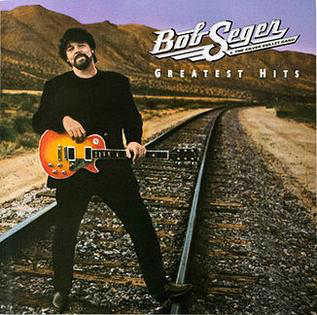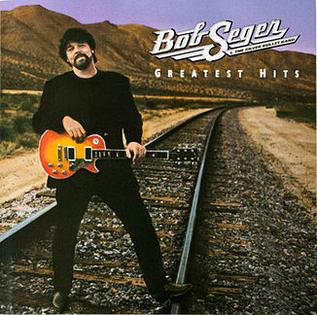Harnessing the power of hindsight...
January 18, 2018

 Sales opportunities can go so wrong in so many different ways. Sometimes, they go wrong due to events or circumstances that were genuinely unpredictable or completely beyond our control.
Sales opportunities can go so wrong in so many different ways. Sometimes, they go wrong due to events or circumstances that were genuinely unpredictable or completely beyond our control.
Sometimes (more often than some sales people might care to admit) they go wrong because of circumstances or events that we really should have known about or could have anticipated.
But all-too-often they go wrong because we failed to find out something we ought to have known until too late in the process, or failed to do something that best practice shows us would have improved our chances of success.
To misquote Bob Seger and the Silver Bullet Band’s classic “Against the Wind”, those are the times when we wished we knew then what we know now…
Atul Gawande, in his excellent “Checklist Manifesto” talks about the difference between errors of ignorance and errors of ineptitude. When we fail to uncover something that could have improved our chances of success, that’s an error of ignorance. These potential errors can frequently be mitigated by asking better questions and doing better research.
When we fail to know or do something that either we or someone else has already learned could have made the difference between success and failure, that’s an error of ineptitude. These potential errors can frequently be mitigated through a combination of honest self-awareness and cross-organisational collective learning.
There is never a good excuse for avoidable errors of either ignorance or ineptitude. Hindsight can be a tremendously powerful too - if we choose to learn from it. Best practice and collective wisdom can guide our actions - if we choose to follow it.
CHECKLISTS CAN ELIMINATE ERRORS
But as Gawande points out, if we do not have a system for eliminating these avoidable errors, we are likely to repeat them. He demonstrates the power of simple checklists in both improving aircraft safety and in reducing patient mortality. If they can work so effectively for highly skilled professions like pilots and surgeons, surely they can work for sales people as well?
Of course they can, and they do already in the many of the most effective sales organisations. Analysing where opportunities can go right and wrong at each stage of their evolution can help guide every sales person to do the right thing at the right time and avoid doing the wrong thing at any time.
This isn’t just helpful to novice sales people in the early stages of their career - it can also help highly experienced sales people (as it helps highly experienced pilots and surgeons) to avoid accidentally missing a vital piece of information or a critical step in the process.
Familiarity can sometimes breed a certain over-confidence, as Neil Rackham found in the research that led to his best-selling SPIN® Selling. He saw that experienced sales people often jumped to conclusions or missed key steps in the process in their rush to bring the deal to a conclusion.
LEARNING FROM COLLECTIVE EXPERIENCE
Here’s how you can harness the benefits of hindsight and avoid preventable errors in your own sales organisation: get your sales people together, tell them to leave their egos at the door and encourage them to have an open and frank discussion how key recent opportunities (including wins, losses and “no decisions”) evolved, and what you all could learn from the experience.
What were the most valuable pieces of information, and what were the most effective actions in advancing the sale? What were the things they realised they should have known earlier, and what were the things they could have done better?
What is the optimum stage in your sales process at which you have learned that you need to know these things or perform these actions? What are the key success factors in performing your critical sales activities? What can you anticipate your prospects wanting to know and do at each stage? And what are the most effective sales tools and buying enablers at each stage?
Condense your findings into short, simple checklists that apply to each key stage in your sales process. Be sure to briefly capture:
- What every sales person needs to know at each stage, and how best to find this out
- What every sales person needs to do at each stage, and how best to do it
- What your prospects are likely to want to know and do at each stage, and how best to facilitate this
- What sales tools and buying enablers are most effective at each stage, and how best to use them
- What consistent milestones every sales person needs to use to judge whether an opportunity is ready to advance to the next stage
There’s no need to over-elaborate - the essence of these guidelines can usually be captured in one page per stage.
PUTTING GUIDED SELLING INTO PRACTICE
If you’re using a modern sales process orientated CRM (Membrain is probably the best current example for complex B2B sales, and can be easily integrated into salesforce.com) these guidelines and checklists can be easily incorporated and can serve to guide every sales person on the agreed best practices and reminders at each stage of the process.
This collectively-defined guided selling approach can be tremendously powerful in elevating the performance of every member of the sales organisation - not just new hires. For new hires, it can dramatically shorten their on-boarding and time-to-productivity. For experienced sales people, it can help them from missing out on some key piece of information or step.
With all due respect to Bob Seger, there are no "silver bullets" in sales - simply practical common-sense solutions like the one above. If you have any reactions to these ideas, please share them. If you’d like to learn more about this guided selling approach or about integrating it into your CRM, please get in touch here.
IF YOU LIKED THIS, YOU'LL PROBABLY ALSO APPRECIATE:
BLOG: Creating a new axis for SPIN® Selling
BLOG: Self-awareness and self-honesty in complex B2B sales
BLOG: We need to collectively develop sales competencies
BLOG: Where is your prospect in their buying journey?
WEBINAR: Selling in the Breakthrough Zone
DOWNLOAD: Our Guide to the Value Selling System
DOWNLOAD: 12-Point Value Selling Self-Assessment
ABOUT THE AUTHOR
 Bob Apollo is a Fellow of the Association of Professional Sales and the founder of UK-based Inflexion-Point Strategy Partners, home of the Value Selling System®. Following a successful career spanning start-ups, scale-ups and corporates, Bob now works with a growing client base of tech-based B2B-focused high-growth businesses, enabling them to progressively create, capture and confirm their unique value in every customer interaction.
Bob Apollo is a Fellow of the Association of Professional Sales and the founder of UK-based Inflexion-Point Strategy Partners, home of the Value Selling System®. Following a successful career spanning start-ups, scale-ups and corporates, Bob now works with a growing client base of tech-based B2B-focused high-growth businesses, enabling them to progressively create, capture and confirm their unique value in every customer interaction.


Comments